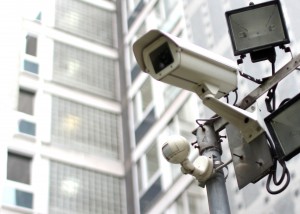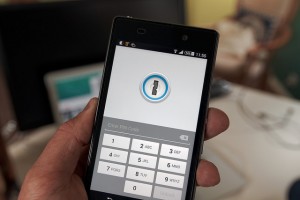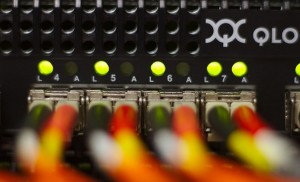If you have Verizon telephone/internet service, please read the below for important information.
We’ve been getting a few inquiries lately, so we wanted to put an article on our blog about this – Verizon has recently made the decision to retire their copper phone lines in favor of fiber-optic communications. If you still have copper cabling at your home or business, you will be receiving a notification from Verizon along with a request to access your building in order to upgrade your cabling.
Failure to respond to Verizon or failure to allow the upgrade will cause a discontinuation of your phone service, which will result in a communication failure for your burglary or fire alarm system. Local Fire Marshals have begun notifying their residents that a non-communicating fire protection system is a violation of the New Jersey Uniform Fire Code and that you may be subject to penalties.
Please keep an eye out for any communications from Verizon and coordinate appropriately. If you do not wish to upgrade your copper cabling, please call us at 800-369-3962 to discuss other options for communication, including cellular.
For more information, please see this release from Verizon regarding their plan.
To see if you are affected by this, please take a look at the addresses here.
If you have any further questions, you can contact your local Fire Marshal, or you can call us at 800-369-3962.

 As a business owner protecting your facility is always a top concern. Are you getting the coverage you need? If you have a comprehensive security system you’re already in a good position. However, a security system is only as good as the sum of its parts. One of the most crucial parts of a security system is the surveillance aspect. Surveillance systems are the eyes that keep watch over your business even when you can’t.
As a business owner protecting your facility is always a top concern. Are you getting the coverage you need? If you have a comprehensive security system you’re already in a good position. However, a security system is only as good as the sum of its parts. One of the most crucial parts of a security system is the surveillance aspect. Surveillance systems are the eyes that keep watch over your business even when you can’t. We’ve all seen those puffy white, wondrous, water vapor creations up in the sky, commonly known as clouds. These natural wonders are not the clouds we’ll be investigating here. Instead we’ll be taking a look at what the “cloud” is in relation to business networks and their security infrastructure.
We’ve all seen those puffy white, wondrous, water vapor creations up in the sky, commonly known as clouds. These natural wonders are not the clouds we’ll be investigating here. Instead we’ll be taking a look at what the “cloud” is in relation to business networks and their security infrastructure.
 We use our smartphones and other mobile devices for many functions in our daily lives. It’s almost impossible to go through an entire day without seeing someone tapping, scrolling, or swiping through their phone, never mind using your own phone. We’ve created a mobile environment where convenience lies in the palm of our hands.
We use our smartphones and other mobile devices for many functions in our daily lives. It’s almost impossible to go through an entire day without seeing someone tapping, scrolling, or swiping through their phone, never mind using your own phone. We’ve created a mobile environment where convenience lies in the palm of our hands. Comprehensive security systems are what help maintain a safe and secure work environment or home. As a consumer it is in your best interest to hire a systems integrator with experience, knowledge, and know-how, but how do you tell the good from the “just okay” or bad? Any company can spout off how many years experience they have or jobs they’ve completed, that doesn’t really give you much insight into how they operate and solve problems.
Comprehensive security systems are what help maintain a safe and secure work environment or home. As a consumer it is in your best interest to hire a systems integrator with experience, knowledge, and know-how, but how do you tell the good from the “just okay” or bad? Any company can spout off how many years experience they have or jobs they’ve completed, that doesn’t really give you much insight into how they operate and solve problems. s a vital role in any comprehensive security system. It helps authorities catch criminals and provides helpful insight into your business operations by collecting and analyzing data on a daily basis. Where and how is all of this visual and analytical data being “collected?” That is the ever pressing question for system integrators and end-users alike. Storing surveillance data can be as important to the efficiency of your security system as having the surveillance equipment itself. We are catapulting ourselves into the future with the constant evolution of technology in all aspects of life including security system components, and surveillance storage solutions are no exception, but not all are created equal.
s a vital role in any comprehensive security system. It helps authorities catch criminals and provides helpful insight into your business operations by collecting and analyzing data on a daily basis. Where and how is all of this visual and analytical data being “collected?” That is the ever pressing question for system integrators and end-users alike. Storing surveillance data can be as important to the efficiency of your security system as having the surveillance equipment itself. We are catapulting ourselves into the future with the constant evolution of technology in all aspects of life including security system components, and surveillance storage solutions are no exception, but not all are created equal. As a property manager you have a lot of people that depend on the safety and security of the real estate you oversee. Whether or not you own the properties you rent, or work with a landlord in managing their properties, a bulk of the responsibility lies on your shoulders. Your main goal is to attract responsible patrons, keep them, and build your brand. How can you do that if the property you oversee is publicly perceived to be too risky or unsafe? That’s the problem, if there has been an incident at a property that you own the public tends to remember and will likely steer clear of that address.
As a property manager you have a lot of people that depend on the safety and security of the real estate you oversee. Whether or not you own the properties you rent, or work with a landlord in managing their properties, a bulk of the responsibility lies on your shoulders. Your main goal is to attract responsible patrons, keep them, and build your brand. How can you do that if the property you oversee is publicly perceived to be too risky or unsafe? That’s the problem, if there has been an incident at a property that you own the public tends to remember and will likely steer clear of that address.